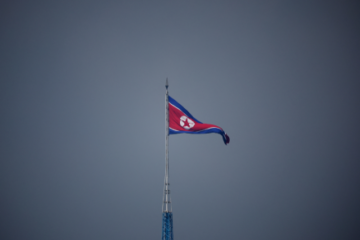Coronavirus claims world’s biggest capacity car plant

Seoul, Feb 7 (AFP/APP): The most productive car factory in the world fell quiet on Friday as South Korea’s Hyundai suspended operations at its giant Ulsan complex, hamstrung by a lack of parts with the coronavirus outbreak crippling China’s industrial output.
The five-plant network can make 1.4 million vehicles annually, in a coastal location facilitating importing components and exporting cars globally.
But supply lines are crucial in an ever more interconnected worldwide economy and the coronavirus outbreak in China has seen Beijing order factories closed in several areas as it seeks to contain the epidemic.
As a result, Hyundai, which with its affiliate Kia ranks as the world’s fifth-largest auto manufacturer, has run out of the wiring harnesses that connect vehicles’ complex electronics.
It is having to suspend production at its factories across South Korea, putting 25,000 workers on forced leave and partial wages, healthy victims of the disease outbreak across the Yellow Sea.
“It’s a shame that I can’t come to work and have to accept a pay cut,” said an Ulsan production line staffer surnamed Park. “It’s a very uncomfortable feeling.”
The closures could be the first example of a phenomenon that rolls out around the world, analysts say.
The impact on Hyundai will be eye-watering, with analysts estimating a five-day South Korean shutdown to cost the firm at least six hundred billion won ($500 million).
Hyundai is not the only corporate casualty: Kia will suspend three plants for a day on Monday, the South Korean unit of French automaker Renault is considering stopping its factory in Busan next week, and Fiat Chrysler CEO Mike Manley told the FT his firm could be forced to halt one of its European factories.
Analysts warn of broader troubles if Beijing extends the Lunar New Year holiday further as the coronavirus — which according to official figures has infected more than 31,000 people in China and killed 636 — continues to spread.
“The biggest problem is that we don’t know how the outbreak in China will unfold,” said Cheong In-kyo, an economics professor at Korea’s Inha University.
“South Korean companies rely heavily on China for parts and components. The problem is even if just one part is missing, you can’t do anything.”
The disruption was only just beginning, he added, and warned it would spread beyond the auto sector.
“There is not a single category that is not manufactured in China.”
21 countries including Pakistan donated prevention, control supplies to China: Hua Chunying









